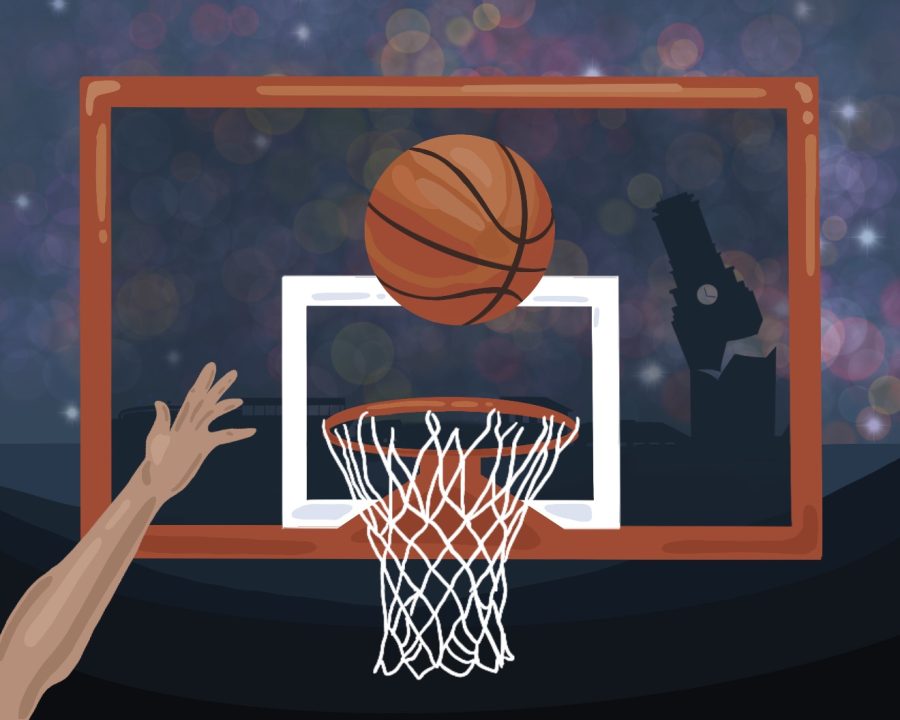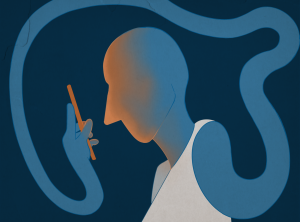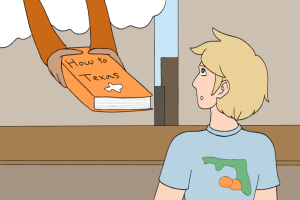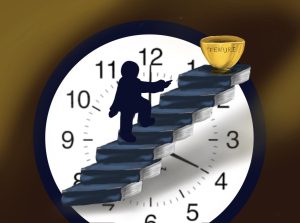With its reputation at stake, where does UT draw the line?
February 5, 2023
Content warning: This editorial contains mention of interpersonal violence.
On Dec. 12, 2022, former Texas men’s basketball head coach Chris Beard was arrested and charged with third-degree felony assault on a family member. UT suspended him without pay later that day. Even after his fiancée, Randi Trew, recanted her accusations, on Jan. 5, Beard was fired just over three weeks after his arrest.
Six months prior, in June 2022, incoming Texas men’s basketball freshman player Arterio Morris was arrested and charged with a Class A misdemeanor for assault causing bodily injury to a family member. Unlike Beard, however, he was not suspended. As the 2022-23 season continues, Morris remains eligible and plays for Texas as a guard.
Certainly, the situations are different. Beard was a University coach charged with a felony, while Morris is a student-athlete charged with a misdemeanor. However, UT’s approach to assigning disciplinary action raises questions about its process for handling such cases. Beard’s termination, while a well-intentioned move, reveals inconsistencies in UT’s standards for addressing misconduct within its athletics department.
In a letter addressed to Perry Minton, Beard’s attorney, and provided to The Daily Texan, UT Vice President for Legal Affairs James Davis explained UT’s rationale for Beard’s termination.
“Chris Beard engaged in unacceptable behavior that makes him unfit to serve as head coach at our university,” Davis wrote. “Whether or not the District Attorney ultimately charges Mr. Beard is not determinative of whether he engaged in conduct unbecoming a head coach at our university.”
In an email statement, Minton reiterated his belief in Beard’s innocence and expressed disappointment that UT fired him before his case could be legally adjudicated.
In this instance, UT administrators were unconcerned with the outcome of Beard’s trial. They did not fire him because a court found him guilty of felony assault; rather, they found his “conduct unbecoming.”
“A coach is a leader — a leader who develops student-athletes’ positive character, supports their education, prepares them for success in lives after graduation and represents the University of Texas with honor and respect,” Davis wrote.
UT understands its coaches must be held to a high standard because of their prominent and privileged roles. As a central figure of Texas Athletics who was responsible for leading the men’s basketball team, Beard’s behavior was unacceptable in the eyes of University officials. But these lofty ideals shouldn’t exclusively apply to coaches.
Although collegiate-level student-athletes must juggle a barrage of academic and non-academic responsibilities, their highly publicized platforms mean they also share an obligation to uphold moral and ethical standards. Like their coaches, players, too, represent UT and should strive for excellence both inside and outside the sporting arena.
Despite these considerations, the University’s response was far more measured when evaluating Morris’ situation. Even as prosecutors weighed legal action against Morris, he was not suspended. But sanctioning Morris in the wake of his arrest would not have been a disproportionate response. Public universities maintain significant discretional authority when disciplining student athletes, ranging from a mandatory review process to automatic suspension after an arrest. Thus, suspending Morris was well within UT’s jurisdiction.
UT Vice President and Athletics Director Chris Del Conte and Justin Moore, Morris’ lawyer, could not be reached for comment. John Bianco, senior associate athletics director for communications, declined to comment.
We don’t know what UT’s internal investigative process looks like, and we don’t know what factors led administrators to pursue divergent paths with Beard and Morris. We do know, however, that both Beard and Morris were arrested and charged with assault, yet only one faced substantive consequences from the University.
As of Feb. 5, Denton County Court Records show that Morris had a motion to compel discovery court appearance on Jan. 19, and his jury trial is scheduled for March 29.
Texas Athletics is fiercely protective of its image. For a top-ranked, high-caliber program like UT’s, reputation matters. Going forward, UT must be more mindful of the processes and justifications used to protect this reputation. “Unbecoming” conduct is unacceptable, regardless of whether it comes from a coach or a player.
The editorial board is composed of associate editors Justice DuBois, Faith DuFresne, Mihir Gokhale, Alyssa Ramos and editor-in-chief Megan Tran.

















